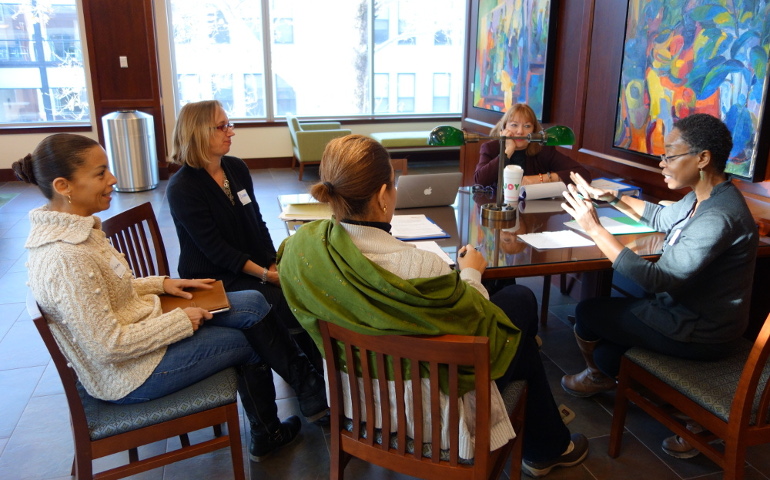
A small breakout group of the 2013-14 cohort of the OpEd Project at DePaul University. Cohorts are pictured with their mentor-editors, who lead the project workshops. (Carolyn Bronstein)
When Hugh Hefner died Sept. 27, The Washington Post wanted to provide its readers analysis about the Playboy magazine founder's cultural influence. So the publication contacted Carolyn Bronstein, professor of media studies at DePaul University, whose area of specialization is the history of media representation of women.
The catch? The Post needed the article by that evening — a deadline that would seem impossible for most academics, who can spend months researching and writing carefully nuanced articles filled with data and citations to be published in academic journals.
But thanks to special training about how to write for popular media and how to get her voice into the public square, Bronstein said yes, and her co-authored piece, "Hugh Hefner's safe sex," ran just two days after his death.
Bronstein received this training through the OpEd Project, a national organization that works with universities, nonprofits and other community organizations to train people to take thought-leadership positions in their fields. The project's goal is to increase the voices of underrepresented groups — including women and others — to shape society and the world.
"Scholars have to come out of the ivory tower and talk with the public," said Bronstein, who directs the OpEd Project Public Voices Fellowship Program at DePaul and serves as the chair of the organization's national faculty advisory board.
"We've got this army of experts in this country who have all this knowledge about pressing issues, but they've been taught to be silent and just talk with one another," she said. "The more we can connect with the public, the better."
That's especially true at Catholic colleges and universities, where the mission often includes involvement in social justice and public life. Several Catholic schools are among the OpEd Project's clients, including Fordham University, Loyola University Chicago and DePaul, which are partners in the Public Voices program.




